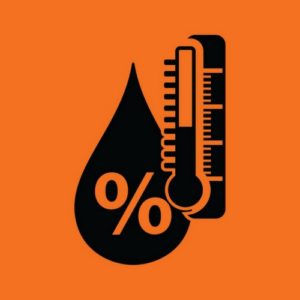
While most people think of Alabama as a mild weather, southern state, that doesn’t mean there’s never a need for keeping a building warm.
One system that’s still around, and still quite useful, is the boiler. But boilers have changed a lot since their debut, and here are a few facts to explain the differences.
How Does It Work?
 While the name “boiler” makes people think of steam, the basic technology is just about heat.
While the name “boiler” makes people think of steam, the basic technology is just about heat.
Older boilers used to achieve this with firewood or coal, but modern systems burn natural gas or use electricity to create a heating element that heats up water.
That heated water is then pumped through a network of pipes that run throughout a building. When the water arrives, it radiates that heat into the air to warm it up.

Do They Actually Boil Water?
Today’s boilers rarely live up to their name. There are still some cases, in very focused, industrial settings where boilers still need to bring water up to the boiling point and vaporize it into steam.
But for general home and business use, 140° is the ideal temperature for effectively heating rooms.
Is There Added Humidity?
 There’s a popular misconception that water-based heating is going to mean more humid air, which could affect fabrics on furniture.
There’s a popular misconception that water-based heating is going to mean more humid air, which could affect fabrics on furniture.
This, however, is untrue. A properly working boiler will never add extra humidity to the air, because the water is sealed away, it is only the heat that transmits into the air, not the moisture.
However, if there is a leak, or break in the pipes, then humidity and condensation may be possible.
 Is Water Pressure A Factor?
Is Water Pressure A Factor?
In fact, high, stable water pressure is good for boilers, just like it’s good for an energizing shower!
Consistent water pressure means that hot water is efficiently being delivered to the rooms that need it to provide a constant source of heat, with minimal waste.
Low water pressure means less effective heating at best, and, at worst, probably means there’s a leak somewhere that needs to be found and repaired.
Are Boilers Cost Efficient?
 As with any upgrade from older equipment to new, there will be a big rise in performance, which will result in lower energy bills.
As with any upgrade from older equipment to new, there will be a big rise in performance, which will result in lower energy bills.
This is especially true for older heating systems that are 20 years or older being replaced with new hardware.
But this is also an investment that adds value, and even resale appeal to your property, since buyers always like modern environmental systems in their home.
Are Boilers Efficient?
 They are! While the best gas furnaces are at about 95% efficiency, top quality boilers aren’t far behind at 90%.
They are! While the best gas furnaces are at about 95% efficiency, top quality boilers aren’t far behind at 90%.
They’re also quieter since they don’t need to pump air out of a vent with a fan, and, best of all, they can heat individual rooms!
That’s far more efficient than heating an entire building if you don’t need to, based on time of day or occupancy, so you get more savings on your energy bill this way.
While things are generally warmer in Montgomery, AL, we can still sometimes need heating in our buildings to remain comfortable or able to work. If you’re thinking of upgrading your hardware, consider looking at boilers and seeing what they do for you!




